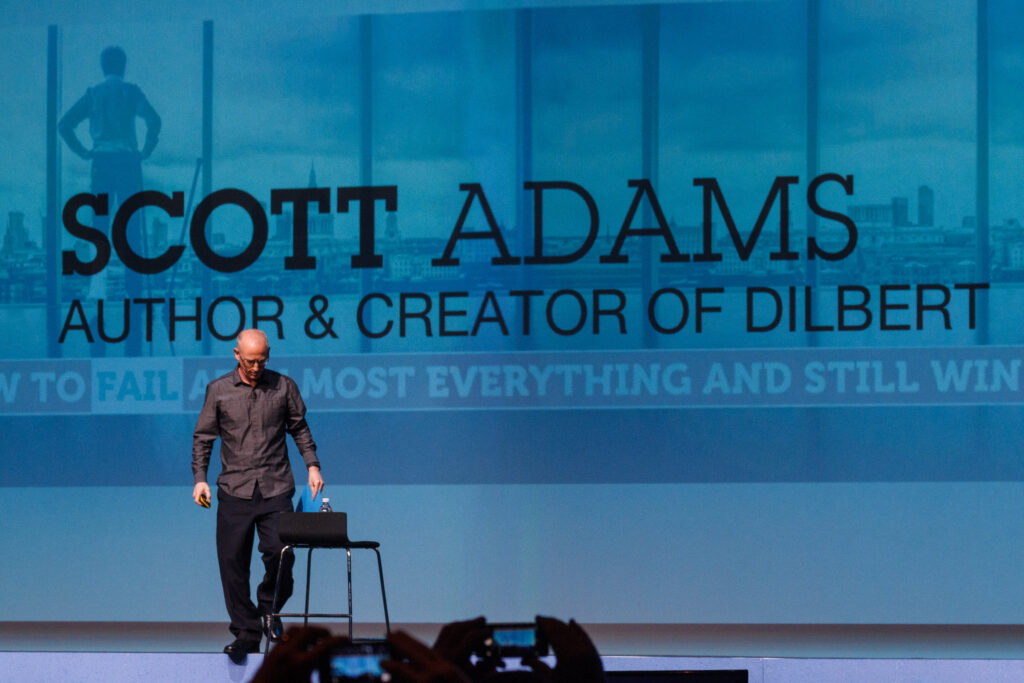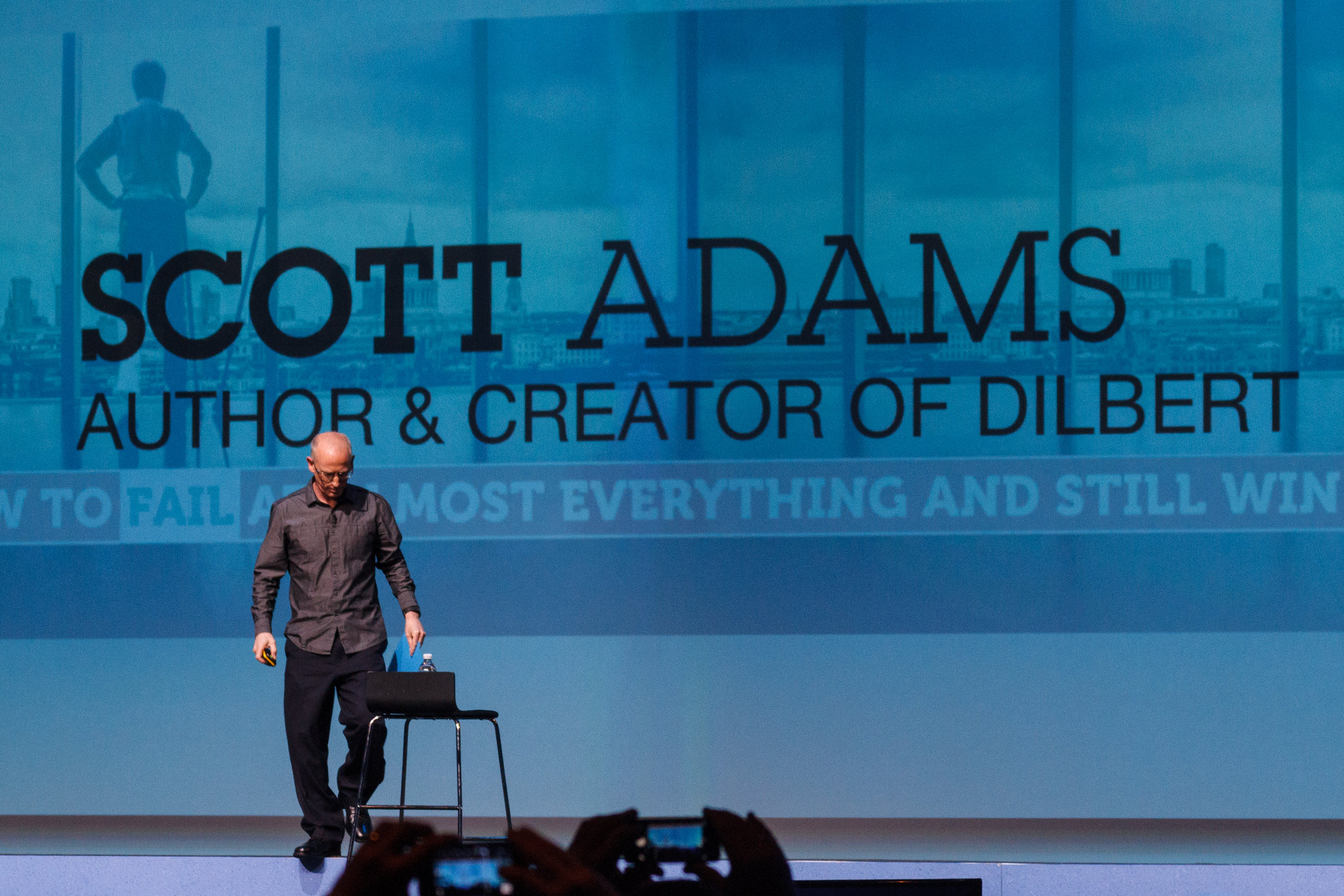Scott Adams, creator of the widely distributed “Dilbert” cartoon, recently complained a poll reported nearly 50% of Blacks were not sure if it was “OK to be white.” Adams surmised that the doubtful Black people were a “hate group” and added, “the best advice I would give to white people is to get the hell away from Black people.”
Actually, scores of newspapers that paid Adams for his cartoon chose to get far away from him.
Adams’ career suicidal rant shed additional light on the Advance Placement [AP] Black history educational dustup in Florida and numerous predominantly southern states. This further denotes a failure to avoid inconvenient and painful historical facts plus a stubborn effort to avoid connecting dots both create harmful, ignorant outcomes.

The 21% of the nearly 50% who told Rasmussen pollsters they were wary of whites had
historical and real-time reasons to be skeptical. As Slate magazine explained, the right-tilting Rasmussen poll was sketchy and suspect. Of 1,000 people polled, 13% of the sample were Black people, according to the source, and only 34 Blacks expressed wariness of whites.
Florida Gov. Ron DeSantis has shut down AP Black history class in the Sunshine
State because, according to an administration spokesperson, it “lacks educational value and is contrary to Florida law.”
AP history classes prepare high school students for the reality they will face in college — deeper, darker, complex lessons. That’s OK because these class members are higher-level critical thinkers and they will get credit for their efforts. Teachers will trust that the students can love America, despite its imperfections and brutal actions. For example, when historian and former Justice Department official Roger Wilkins wrote “Jefferson’s Pillow” in 2001, it was his attempt to explain the essential importance of statesmen [and slaveowners] George Washington, Thomas Jefferson and James Madison to his two young Black daughters.
Sunday’s CNN rerun of the 2021 HBO-produced documentary on 44th U.S. President Barack Obama reminded viewers about the fault lines of race in 21st century America. The film, among other topics, covered the attacks on Obama by political foes after he said local police “acted stupidly” for arresting Harvard professor Henry Louis Gates despite the fact that he showed proof he was entering his own home. Obama was lashed again a few years later when he was asked – he did not volunteer – to react to the shooting death of unarmed Black teenager Trayvon Martin. Obama said Trayvon could have been his son.
And CNN reminded viewers about the case of Shirley Sherrod, a Black agriculture official in
Georgia who was smeared with a doctored video that made it appear that she discriminated against a white farming couple decades ago. Actually, Sherrod gave the couple first-class service, but lamented the many Black farmers who had been blatantly robbed of their farms and livelihoods. The incendiary prankster, journalist Andrew Breitbart, died not long after Sherrod sued for malicious defamation.
Scott Adams says he is aggrieved that some Blacks are wary of whites. Does Adams really
believe they are hateful, or is the cartoonist dangerously ignorant?
It is debatable whether Americans are living in post-racial 2023, yet something is evolving quickly in the marketplace and in demographics. Six decades after Barack Obama was born in multiracial Hawaii to a white Kansan mom and Black Kenyan dad, and 56 years since the U.S. Supreme Court Loving case that declared bans on interracial marriage unconstitutional, TV advertisements routinely show interracial couples, Black husbands/white wives, Black wives/white husbands, with their beige- and butterscotch-complexioned children. Isn’t it time to explain how we have arrived at this new normal? Because the reality did not happen magically.
There is a complex story of struggle, resistance, heartbreak and hard-fought victories.
How can we look away from the lethal state-inflicted racial violence visited frequently on
unarmed Black males, caught on citizens’ camera phones, as if authorities don’t care we’re
watching? Those are incidents that are too strong, too current for basic high- to middle-school social studies according to many local school boards, but still are essential learning for AP-level high school students projected to be our leaders in government, corporations, and media.
Tech industry mogul Elon Musk has rushed to Scott Adams’ defense, tweeting Sunday “The media is racist.” But does the Tesla creator and new owner of Twitter have standing in the court of public opinion? In 2021, a former Tesla worker was awarded $137 million for enduring Musk’s racially hostile workplace.
Somewhere in his successful run as creator of funny cartoon about a brooding engineer with an alter ego dog, Scott Adams turned mean. AP Black history was not made to brainwash high school honors students or even make the White ones feel bad. It exists to give them context, connect dots, and maybe throw in much needed empathy, like the empathetic young whites who marched in solidarity for George Floyd and other recent Black martyrs, much to the consternation and befuddlement of some elders.








